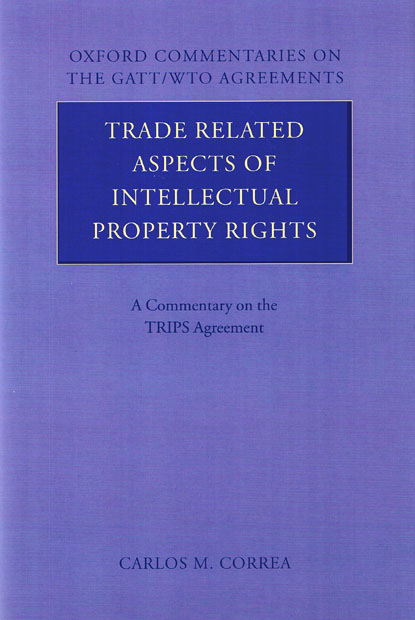
The TRIPS Agreement is the most comprehensive and influential international treaty on intellectual property rights. It brings intellectual property rules into the framework of the World Trade Organization, obliging all WTO Member States to meet minimum standards of intellectual property protection and enforcement. This has required massive changes in some national laws, particularly in developing countries. This volume provides a detailed legal analysis of the provisions of the TRIPS Agreement, as well as elements to consider their economic implications in different legal and socio-economic contexts.
This book examines the obligations imposed on WTO Members in different fields of intellectual property, and thoroughly explores the flexibilities that they enjoy in implementing the Agreement. It discusses the interpretation of the Agreement's provisions and the WTO jurisprudence already developed on certain aspects of the Agreement. It also includes a brief discussion on emerging issues such as protection of traditional knowledge, and on options for further developments e.g. copyright in a digital environment, and the relationship with competition law. It also takes into account recent developments in bilateral agreements and free trade agreements that contain TRIPS-plus standards of protection.
The Preamble and general provisions of the TRIPS Agreement are addressed, as well as the substantive rules on copyright and related rights, trademarks, geographical indications, industrial designs, patents, integrated circuits, trade secrets and test data. The controversies about the implementation and interpretation of these provisions are highlighted, including the content an implications of the Doha Declaration on the TRIPS Agreement and Public Health of November 2001, and of the WTO Decision of August 30, 2003 relating to access to medicines. The book also analyses the crucial enforcement provisions and other aspects of the Agreement.